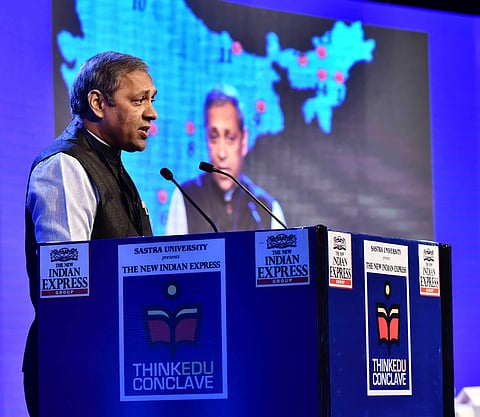

When the government finally decided to enforce the National Eligibility cum Entrance Test (NEET) for all medical admission last year, there was a lot of bluster, outrage and protest. Very few people made sense enough to get the Supreme Court to stop and listen, without taking to the streets. One of the few people who did manage that was Dr Sunil Thomas Chandy, the Director of CMC, Vellore. Ahead of the 2017 academic intake, Dr Chandy spoke about how a merit-only system like NEET was going to be detrimental to the government's own goals of boosting rural healthcare and community medicine. Excerpts from a conversation:
You have legally submitted that NEET will affect the results that an institution like CMC has managed. How different is your system of admission?
We are not opposed to merit, but what the government defines as the exclusivity of merit. We believe in suitability. Let's say we have candidates with centums in all subjects, they can get into any medical college. But to convert him into a physician takes a different kind of suitability. This is a profession that requires compassion. This merit-only policy is out of place. Scientists and engineers work with inanimate objects. A physician works with living, breathing souls. I would urge that along with NEET, the government must formulate a suitability test.
Does it also affect minority institutions and the way they've been operating?
Yes, it stamps on our mission. Minority Institutes of Excellence share a common credo, in our mission to train healthcare professionals to do service in areas that are remote. Beyond the contractual arrangement (students have to work in the rural stations that had nominated them, for at least 2 years), the hope is that they will continue to stay in those rural areas.
This is something that the MCI has been trying to do for years. Make rural service mandatory. But it hasn't worked out.
There is no permanency when you force students to work for 2 years in a rural place. We have 90 per cent of our undergrads working in India. And of these, a significant number work in Tier-III and smaller places. The fact is that, we fulfil more of the government's mandate of serving people in rural areas through our selection than the government themselves. Look at how many people from AIIMS stay back, it's barely 7 per cent.
The numbers are on your side. But can this work for colleges everywhere?
This is where there is a fundamental problem with merit and merit-only. A 17-year-old chap who just finished school knows he is among India's top ten. What is his sense of commitment to the country? He believes that the country owes it to him to give him that education. At that stage in life, his expectation of facilities and life are way higher than this poor country can provide. So, he says that he wants to work in Harvard or Johns Hopkins. So, he goes. Compare this with a poor boy from Jharkhand who we pick up and he may be very average, but he is a local boy serving a local community. He goes through his training with a tremendous sense of obligation and gratitude knowing that he would have been nowhere had we not made him a doctor. He does not dream of going to Harvard. Therefore, in fulfilling this country's huge needs, this system serves better. Merit with a mission is what we are pushing for. Getting 99 per cent does not ensure that you will make a committed doctor, instead I would rather train a chap with 55 per cent who has a sense of social consciousness.
Dr Sunil Thomas Chandy, Director, Christian Medical College
Having doctors run dual-practices is a constant problem in India. Do you think that will change in the next 20 years?
It's going to get worse, because of the way medicine is being driven by a combination of the medical fraternity, pharma, device companies, and venture capitalists towards a lucrative business. So, if I join a med school with their dream of making money, because I am spending money to get in, what will happen? Teaching, health and priesthood are domains that are service-oriented. They cannot be commercialised and corporatised. That cannot happen. Just look at the way doctors are marketing themselves on websites. His patient is his business entity. A customer. It's a bad word to use. This paradigm shift from seeing you as a sufferer whom I should serve, into a reason for me to make my unreasonable earnings, is a decay of the Hippocratic Oath. Who even takes it these days?
There's an insane amount of stress on surgical excellence in a country that urgently needs something as unglamorous as community medicine. Will this ever shift?
Public and community health are the crying need of the hour. It's because we have drifted from that that healthcare is in this state today. It's about people, where surgical expertise is depersonalised. Today, you can robotically operate from here on a patient in Washington. Sometimes, they don't even know the name of the patient, only their in-patient number. Medicine is dehumanised, depersonalised and very reductionist. I don't look at you as a person. I don't see your underlying conditions or your emotional turmoil. If I am your doctor I must treat you as a whole person and not have a spare-parts approach that surgeons have. Unless there is a genuine revisiting of ethics, the gulf is going to widen.
